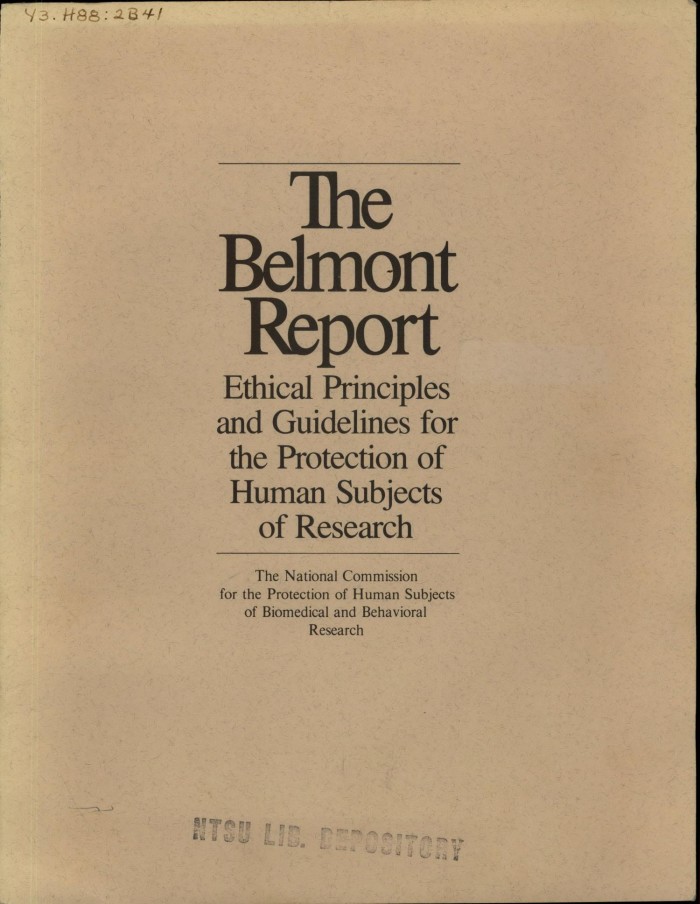The Mother of Modern Medicine: Henrietta Lacks and the Debate Over HeLa Cells
Medical Diplomacy

The Belmont Report: Ethical Principles and Guidelines for the Protection of Human Subjects of Research. [Bethesda, Md.]: The Commission, 1978.
With ethical concerns over biomedical research increasing, steps were taken to place rules and regulations on research protocols. In 1974, the Institutional Review Board was created to protect the rights of individual patients, especially those who are most vulnerable. The Belmont Report, written in 1979, initiated the creation of the Common Rule, which was officially enacted in 1991, as a “baseline of standard ethics” in federally funded research. In 1996, Congress passed the Health Insurance Portability and Accountability Act (HIPAA) to protect private patient information
[b]esides their priceless contributions to biomedical research over the past 60 years, Mrs. lacks and her family are now serving as a catalyst for policies that advance science, build trust, and protect research patients.
-NIH Deputy Director for Science, Outreach, and Policy, Kathy L. Hudson

NIH Director Francis S. Collins, Ph.D., M.D.; Jeri Lacks-Whye; and David Lacks, Jr. 28 Sept. 2017. National Cancer Institute
Henrietta Lacks’ HeLa Cells were used without Henrietta Lacks’ consent, which was an unethical medical practice but accepted in 1951. The immortality of the HeLa Cells proved to be the catalyst for years of advanced medical discoveries. Debates over medical research ethics concerning consent have led to diplomacy in the form of legislation and oversight including the 1996 Health Insurance Portability and Accountability Act (HIPAA), which protects patient rights, informed consent, and the increased communication among the medical community, donors, and research participants. Through continuous debate and subsequent diplomacy now with the input of the Lacks family, the use of HeLa Cells continues to facilitate important medical research and discovery.